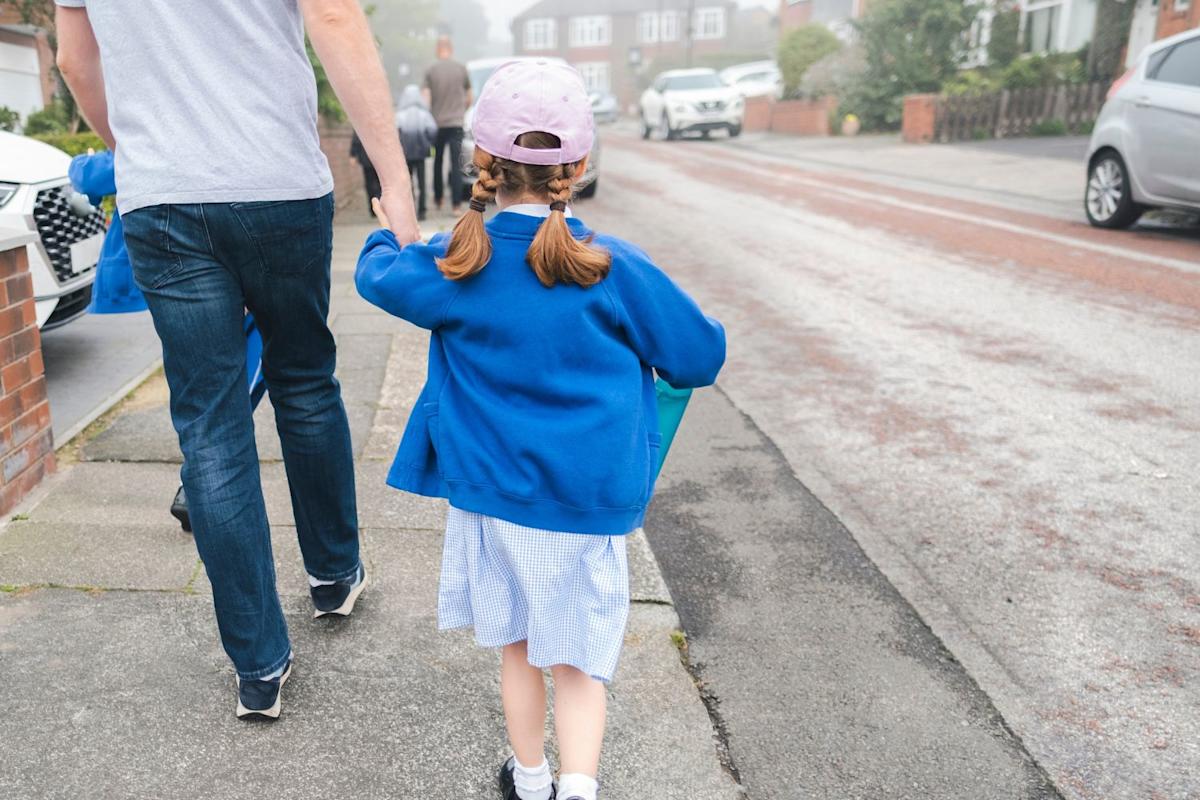Parents are being urged to “take responsibility for keeping children safe” after new analysis found an average of nearly 50 young boys and girls are killed or seriously injured on Britain’s roads every month.
Road safety charity Brake, which issued the plea, said figures, based on analysis of Department for Transport (DfT) stats found 17 children aged seven and under died and 574 suffered serious injuries in crashes in 2023. During the previous year, 20 children in that age range were killed and 552 were seriously injured.
The concern comes as the charity is running an initiative on Wednesday named Beep Beep! Day which will see more than 90,000 children aged between two and seven given road safety messages by schools, nurseries and childminders.
Ross Moorlock, chief executive of Brake, said it was “shocking that the number of children who have been killed or seriously injured in road crashes has risen in recent years”.
He went on to say the initiative would provide a “great opportunity to start conversations about road danger and help them understand why road safety is so important.”
Do we need to update how we teach children road safety?
Parents understand the importance of keeping children safe on the roads, and many likely still refer to the similar stop, look, listen advice administered by our own parents.
But there have been some changes to the hazards on the roads that adults and children need to be aware of, starting with advances in technology.
According to an analysis of British road traffic accidents, by London School of Hygiene and Tropical Medicine, hybrid and electric cars are more likely to strike pedestrians than petrol or diesel vehicles, particularly in towns and cities.
While it isn’t exactly clear why eco-friendly cars are more hazardous is unclear, researchers suspect a number of factors are to blame, including the fact that the vehicles are much quieter than cars with combustion engines, making them harder to hear, especially in towns and cities.
Nicola Christie, professor in transport safety at UCL, told Guardian that people, particularly children, often rely on sound to judge the presence, speed and location of vehicles. “When these cues are missing this could be very problematic for people in busy urban areas,” she said. “The problem could be exacerbated for people with poor visual acuity or for children who find it hard to judge the speed and distance of vehicles.”
The presence of e-scooters and e-bikes could add a further complication to the road safety advice adults need to give children. According to the European Transport Safety Council the increase in the use of e-scooters has contributed to an increase in road collisions involving them, which has led to calls to tackle potential risks to both e-scooter riders and other vulnerable road users such as pedestrians.
With these changes in mind do parents need to adapt what they teach children about staying safe on the roads?
“Road safety is an important life skill that parents and carers can begin teaching to children at a very early age,” explains Caitlin Taylor, road safety manager at the Royal Society for the Prevention of Accidents (RoSPA). “You can do this while walking to school, going to the shops or park, or just walking around the local area. It’s also essential to set a good example for children by always crossing a road safely and never taking risks yourself.”
While you might remember your own parents teaching you these rules, Taylor points out that changes in the type of vehicles on our roads mean that today’s roads present new hazards.
“For example, it is much harder to hear electric vehicles than petrol vehicles, so teaching children to look extra carefully before crossing the road is paramount,” she adds. “Electric vehicle charging cables can also be a trip hazard parents and children need to look out for.”
If not ridden responsibly, Taylor says e-scooters also have the potential to cause serious injuries to pedestrians. “Particularly vulnerable groups like children – and children should never be allowed to ride or play with e-scooters or e-bikes themselves,” she adds.
Other road safety advice for children includes being aware of safety during times outside of crossing a road. “Road dangers for children aren’t limited to crossings,” she explains. “Serious – and even fatal – collisions can occur on driveways, so make sure there are no children near you and continue to check all around as you reverse your car slowly,” she continues. “Always park your car in a safe place and ensure your children exit onto the pavement not the road.”
Where to go for further help
There are a number of resources available for parents, guardians and carers who are keen to educate their child on road safety.
-
The Royal Society for the Prevention of Accidents (RoSPA) has a helpful guide for parents about keeping children safe on the roads.
-
Road safety charity Brake has some advice for parents on making safe journeys with children.
-
Child Accident Prevention Trust (CAPT) has a helpful road safety factsheet.
-
THINK! – Road safety has of information on various road safety campaigns.
Read more about parenting:

